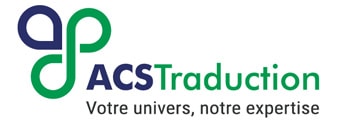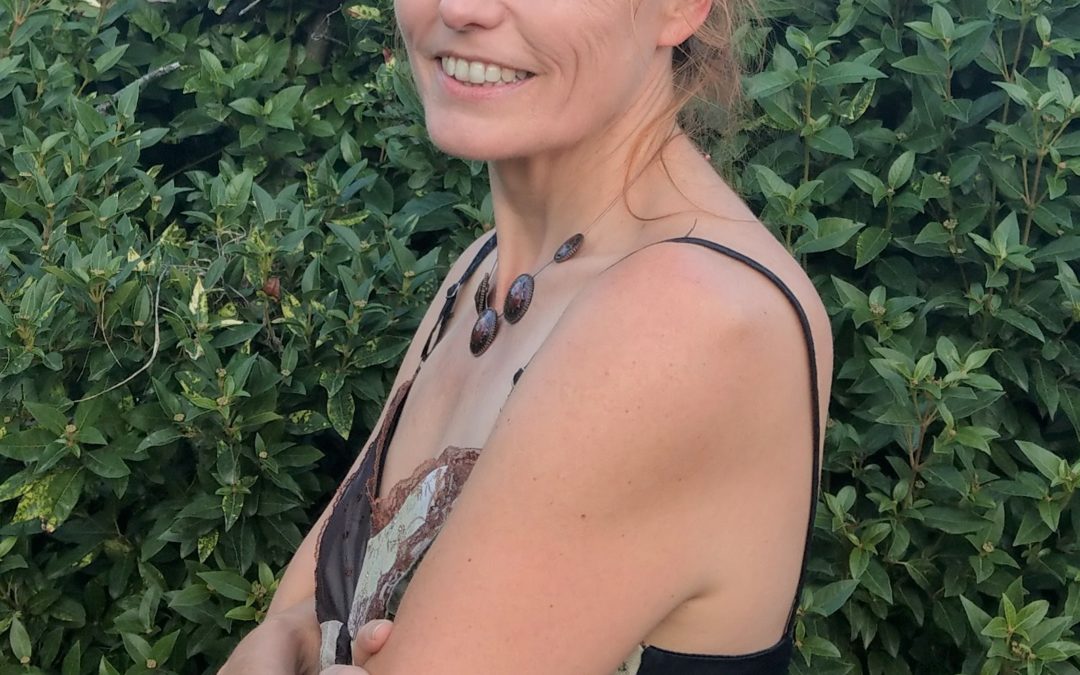This week we are meeting Anke Seyberth, founder of the translation agency ACSTraduction, expert sworn translator in German, as well as in translation and interpretation German/French/English to German/French.
Let’s get to know more about her journey, her insight into legal and sworn translation, and of the general translation market. Anke was behind the creation of the first online translation shop catering to individual services!
But ACSTraduction translation agency, also provides individual services, as well as professional services. Let’s meet the woman behind the company!
ACS is an acronym of my full name, Anke Caroline Seyberth. To tell you the truth, the “traduction” part annoys me because today we export internationally, which is why I’d prefer to find a name that is a bit more anglophone. We’re currently working on it.
What are your passions in life outside of sworn translation?
I enjoy nature, hiking, and the mountains. We are actually currently situated in Grenoble, so it’s perfect for me.
What made you choose to set-up shop in Grenoble?
I chose Grenoble because it is an open, multinational, technologically oriented, and it allows us to partner with the University of Grenoble , we provide their students with internships. Inovallée is an association that is similar to a business committee comprising of innovative businesses and others, like ACSTraduction, who cater to these innovative businesses by providing these businesses with sworn translations in German and French. They are also located in Grenoble. All of this wasn’t possible in Ardèche, where I lived before coming to Grenoble.
What are your favourite and least favourite things about German sworn translation?
I love the energy, the business development and the innovative research, the day-to-day work with my team, which I really enjoy, as well as the independence and the collaboration. I like that we can all be independent in the process, but in the end, it all leads to the same result. In terms of development, I would say what motivates me is constantly being able to outdo myself and improve.
On the other hand, I’m not a big fan of the amount of various administrative tasks that have to be done. Sometimes it can get quite frustrating when I spend so much time on these administrative tasks, which sometimes prevent me from doing anything else.
What is the leitmotif at ACSTraduction?
To help people!
Can you tell us about your management view?
We have naturally established a good atmosphere because that’s the way I like things to be, including management. I believe that as soon as we’re a team, we have to trust in our collaborators and in their skills. I see businesses as a joint work, a collaboration. The key is trusting each other.
It is equally important that the employees feel as though they are a part of the business’ adventure, and that they are the driving force behind the business. Recruiting can be very difficult at the beginning, especially when getting to know people’s personalities. With time and experience, this becomes much easier. We always try to make potential employees aware of how we work, so that they can see if it’s something that suits them. In particular, we always look for people who will be able to reflect well on the business, by being open-minded, dynamic, enthusiastic, driven, engaged and involved. That counts just as much as skill. Our staff must also be very flexible because our business is growing rapidly, so we’re constantly evolving.
This is also why it’s very important to work together because I can’t always be there to look over the day-to-day activity. So we meet and think of ways in which we can improve on things. I also feel like everyone is proud to participate in the construction of the daily business because we started from nothing. This is one of our main motivators, in addition to the great customer feedback that we receive. In that respect, we look for people who are responsive, and who have exceptional customer service skills.
This is also why we have a high-quality network of independent sworn translators, who provide our clients with sworn translations in German and French.
The French Ministry of Justice pays sworn translators 10 cents per word. Do you think that it’s a secure profession?
The price of 10 cents per word hasn’t increased since 2005, I think. In the translation market, the prices have actually almost been cut in half. Before, we were able to charge 20 or 25 cents per word, which is impossible today, where we fluctuate between 10 and 13 or even 15 cents per word at most. Many translation agencies have contributed and still are contributing to these decrease in the market, which of course has its repercussions, and this is even worse with post-edition.
My strategy was to not bother with these discount shop prices, but to propose something more, exceptional service, an online shop, in order to “justify” our prices and to keep them at acceptable levels.
Our online shop, which was created in order to save time that is usually spent on the quotation process, also facilitates the translation process for our clients, because what’s important to remember is that quite often our clients require translations not just for the purpose of having something translated, but in order for them to progress in their official procedures. Our goal is to make these procedures easier for our clients. Our views allow us to stand out in a way, because many businesses only think about the financial profit of their work.
In terms of the future of translation, I think that it is going to progressively be replaced by post-editing, especially for certain areas that don’t require transcreation, and I also think that the hourly rates are going to be reapplied.
Now that you mention it, what do you think about post-editing?
I see it more as a tool that helps translators save a lot of time. It helps us work more effectively, repetitive projects are completed a lot quicker, and with the same profitability, and documents that have already been translated allow for an easier approach to long and complex sentence.
Post-editing takes all of the hard work out of the translation process and gives the translator the chance to concentrate on improving the text, the style, or other more creative projects. On the other hand, I don’t think it is a suitable option for translations that require transcreation. In any case, we include it in our services, in order to adapt to the evolving market requirements.
What are the qualities of a good translator?
Curiosity, the capacity to research terminology, and the capacity to constantly challenge yourself.
Could you tell us more about your interpreting career?
Interpreting can be a very anxiety-provoking career because you don’t know which terminology may be used in advance. I really like doing it because I feel very helpful when I do it, especially when concerns court hearings.
Interpreting is very distinct to translation because you are directly dealing with the people who require assistance. It’s a lot more complicated because it’s instant, but also because sometimes you have to remember quite long sentences.
What’s funny in this line of work, and happens to everyone at least once during long sessions of interpreting, is addressing someone in the “wrong” language. This often makes people smile. It’s a lot of work mentally.
Another difficulty, especially with people in custody, is that the person talks more than they should instead of answering questions. This is why I am obligated to be clear and explain to them that I’m only there to interpret for the French Ministry of Justice.
In two weeks, our next profile will be on Floriane, who is a German-French translator.




